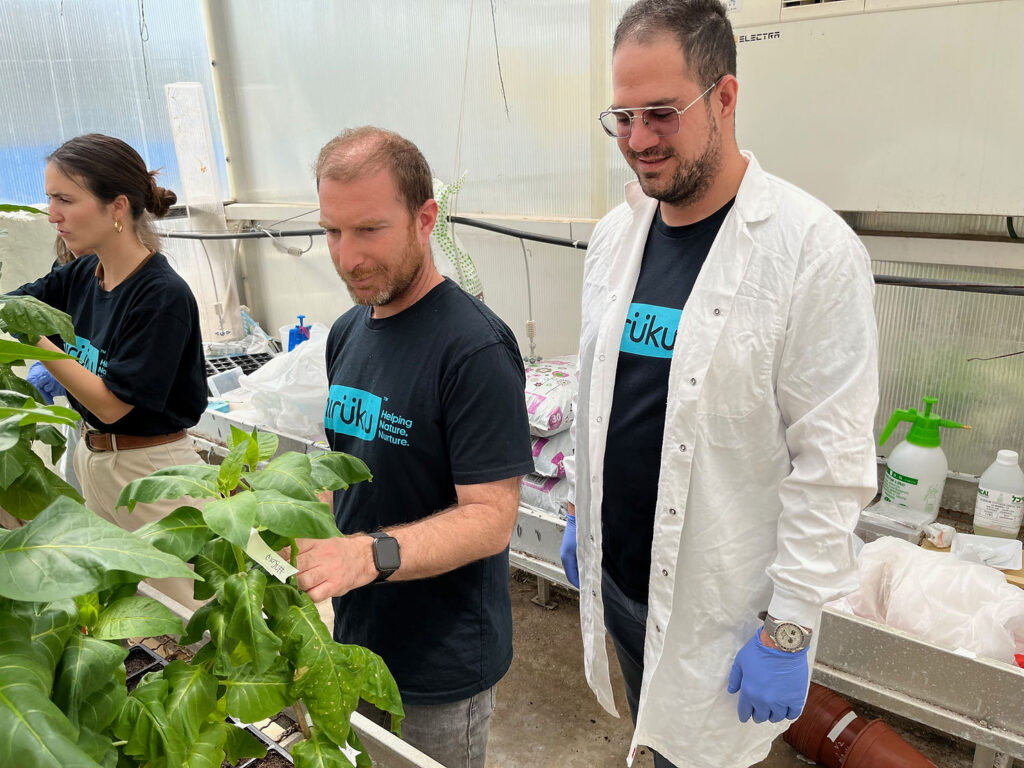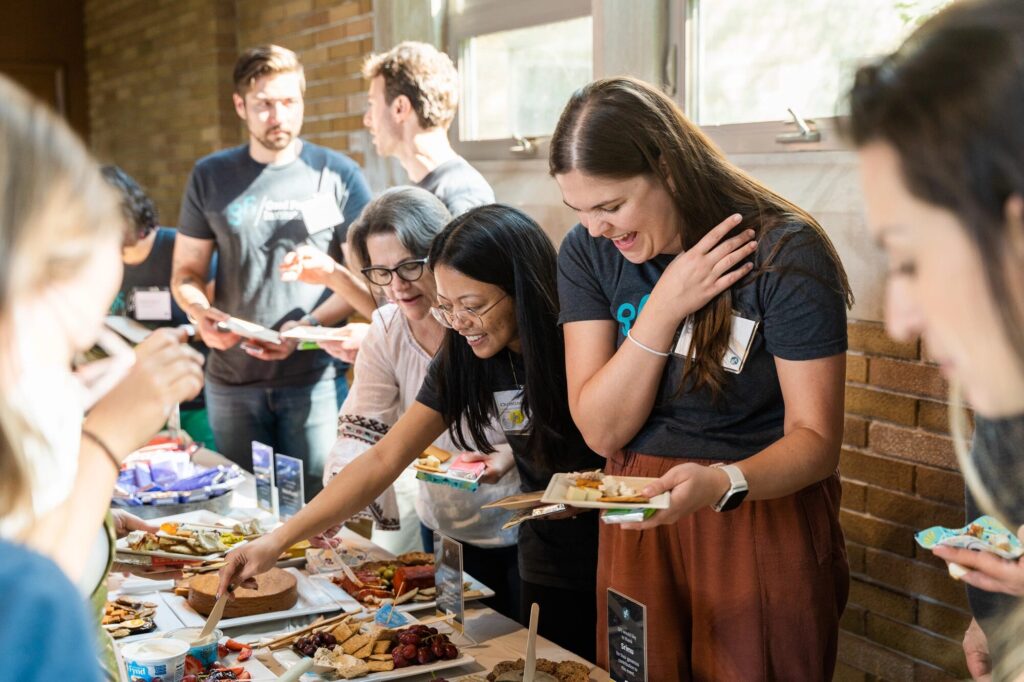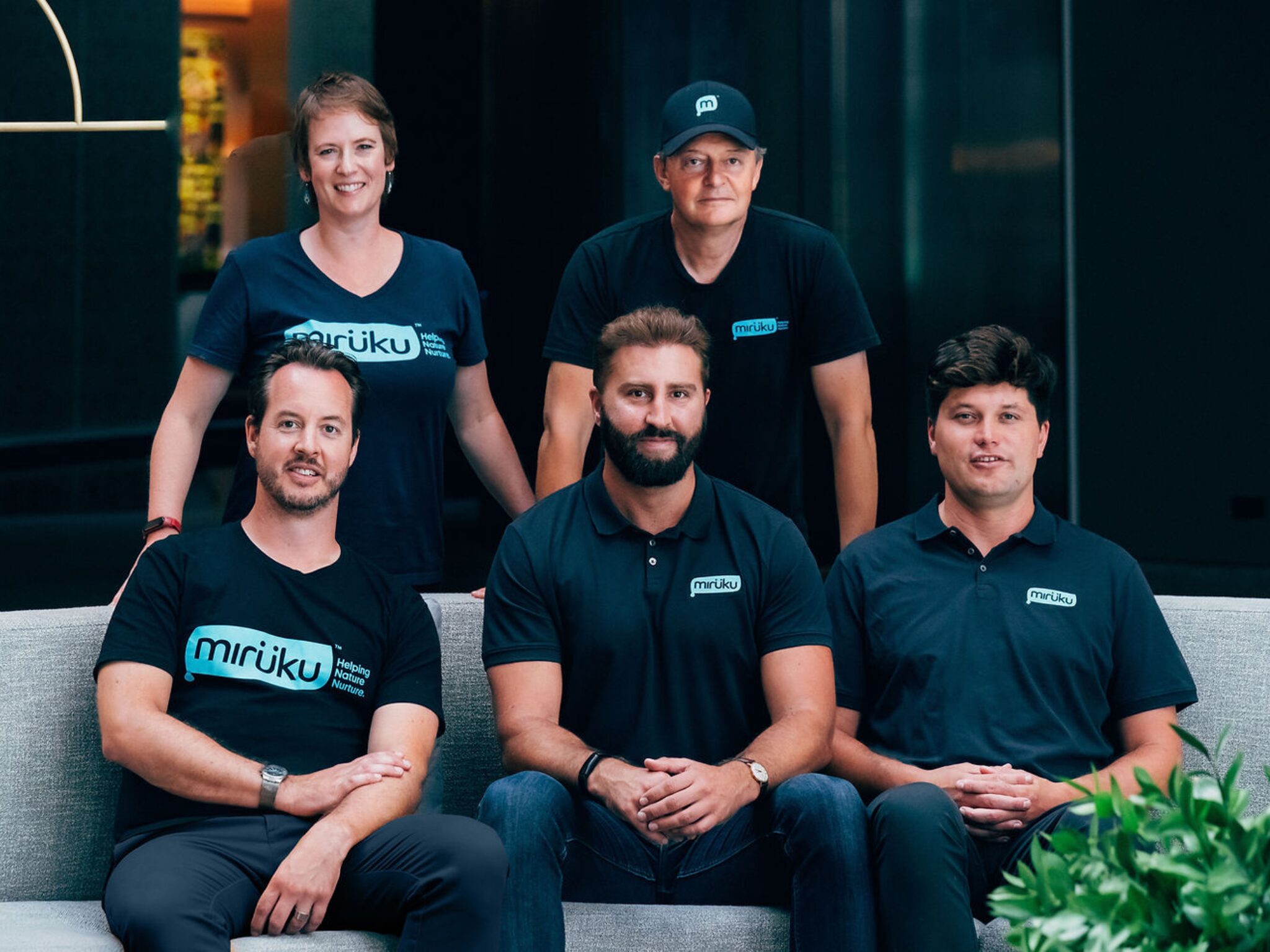Miruku: New Zealand Startup Raises $5M in Pre-Series A to Create Dairy Products with Molecular Farming
6 Mins Read
New Zealand food tech startup Miruku has raised $5M in a pre-Series A financing round to expand its molecular farming platform for dairy proteins and fats, and conduct field trials in Australia.
The $5M pre-Series A fundraiser was led by Motion Capital and included returning investor Movac and new investor NZVC. It brings Miruku’s total raised to $7.4M, following a $2.4M pre-seed round in March 2022.
Lachlan Nixon, managing partner of Motion Capital, told Green Queen via email: “We are delighted to be supporting Miruku to re-write the rules of dairy production. Miruku’s molecular farming technology enables the production of bio-similar dairy proteins and fats at a significantly cheaper cost, as well as with significantly less environmental impact, than traditional animal agriculture.”
Michal Klar, founding partner at Better Bite Ventures, which invested in Miruku’s pre-seed round, added: “From the start, we were impressed with the combination of technical and business experience in Miruku’s founding team.
He continued: “Great to see new investors on board – this round will give the team the funding necessary to bring their unique molecular farming platform closer to the market, and cut the climate impact of dairy production.”
The molecular farming company will use the capital to advance its dairy seed system, co-develop products with industry partners, and strike a collaboration with the Commonwealth Scientific and Industrial Research Organization, the Australian government body responsible for science research. This will entail Miruku testing its modified safflower varieties in field trials in Australia to support regulatory approval.
“Miruku is committed to innovating at the intersection of agriculture and biotechnology,” CEO Amos Palfreyman said in a statement. “Our technology offers a scalable solution to meet the growing demand for sustainable dairy alternatives, supporting the global transition towards a more sustainable food system.”
Using plants as bioreactors to reinvent dairy molecules

Founded in 2020, Miruku blends the lines of biotech and agriculture for future food, with the aim of disrupting New Zealand’s giant dairy industry, which is responsible for one in every four export dollars earned by the country (totalling $25.7B). The startup wants to work with farmers to help pivot to more planet-friendly farming processes.
It is Asia-Pacific’s only molecular farming company and among just a handful around the world. The tech involves modifying plant cells into mini-factories that can replicate animal-derived proteins, fats, sugars and other molecules, which can then be harvested from leaves or other plant tissues. It’s akin to the process of microorganisms infecting plants and transferring some of their genes.
Molecular farming has several advantages over animal cell cultivation and precision fermentation, especially in terms of cost and scalability, given that it eschews bioreactors for plants themselves. For its dairy elements, Miruku is reengineering safflower due to its climate resilience (the crop is resistant to droughts and can be grown in residual moisture in semi-arid conditions).
Like precision fermentation, molecular farming does entail genetic engineering. But speaking to Green Queen in 2020, Palfreyman noted that this tech has made “huge progress over the last decade”. “While the plants we grow have been genetically transformed, the proteins that our plants produce are the same as normal dairy molecules. That’s the point,” he said. “They are safe, clean, friendlier to the planet and as nutritious and delicious as the same dairy molecules from a cow.”
Klar gave additional context on how molecular farming could “reinvent how dairy is made”, highlighting its benefits: “Because it is using plants as a production vehicle, it can do it at scale and ultimately at price parity – or even price advantage – to animal-derived dairy. And most importantly, in a much more sustainable way.”
Other companies working on molecular farming include Nobell Foods and Mozza, both of whom are developing dairy molecules, while Moolec, Tiamat Sciences, Bright Biotech and ORF Genetics are using the tech for other applications.
Palfreyman told TechCrunch that Miruku differs from the rest in a few ways: it has a B2B model, focuses on both proteins and fats within the same plant, and uses safflower crops. He previously revealed to Green Queen that Miruku aimed to eventually make a broad range of dairy alternatives, including yoghurt and cheese.
Taking on New Zealand’s massive legacy dairy sector

Since its pre-seed financing, the company has advanced its tech, which previously programmed plants to produce proteins that could be extracted from seeds, but now can make use of interactions between recombinant dairy casein protein and native plant proteins, with or without improved fatty acid profiles. Casein, which makes up 80% of the protein content found in dairy, is key from a textural perspective, giving cheeses their signature melting and stretching properties.
“This breakthrough allows us to utilise a larger portion of the seed, transforming it into a range of versatile ingredients tailored for the food and beverage industry,” said Palfreyman. “We’ve now reached several key proof-of-concept milestones demonstrating the viability and potential of the dairy seed system.”
Moreover, the startup has tripled its team, cultivated relationships with food manufacturers for co-development opportunities, and expanded its footprint to Israel and Australia, the latter being its initial launch market. “Miruku has not only aimed to navigate the challenges presented by the shifting climate impacting traditional dairy production but has also broadened our focus to address critical issues of food security and nutrition,” Palfreyman explained.
New Zealand is the world’s largest exporter of dairy proteins, and per capita: milk consumption reaches 400 million litres a year, with 190 two-litre bottles of milk sold every minute in supermarkets, according to Fonterra, the leading dairy producer globally and New Zealand’s biggest company. But there is a huge environmental trade-off, with half of the nation’s emissions coming from agriculture, three-quarters of which are a direct result of methane from livestock.
This is something locals recognise, with 51% of respondents in a 2022 survey agreeing that plant-based alternatives are better for the environment than dairy. However, 66% of consumers find dairy to be higher in nutritional value, with 78% calling it better value for money and 70% labelling it to be better for the national economy.
According to Scott Day, co-founder of Free Flow Manufacturing Grocery – which opened New Zealand’s first dedicated alt-milk facility last year – plant-based milk sales increased by 44% from 2019 to the end of 2022, rising from NZ$61M ($37.4M) to NZ$88M ($54M). But this is still a fraction of the country’s conventional dairy sector.
It’s what makes technologies like Miruku’s so important. One thing the company will have to figure out is regulatory approval from the bi-national Food Safety Australia and New Zealand, which has previously approved Impossible Foods’s modified heme ingredient for commercial sale. “Navigating the regulatory processes for the introduction of all new crops and the marketing of all foods with new ingredients is super important,” Palfreyman told this publication in 2022. “Fortunately, the regulatory environments for both growing, formulating and selling to consumers have opened up in major continents and are widening every year.”
“Our priority is to advance our technology and progress towards market readiness,” Palfreyman told TechCrunch. “This includes expanding our footprint in Australia and looking at establishing a presence in the United States.”




